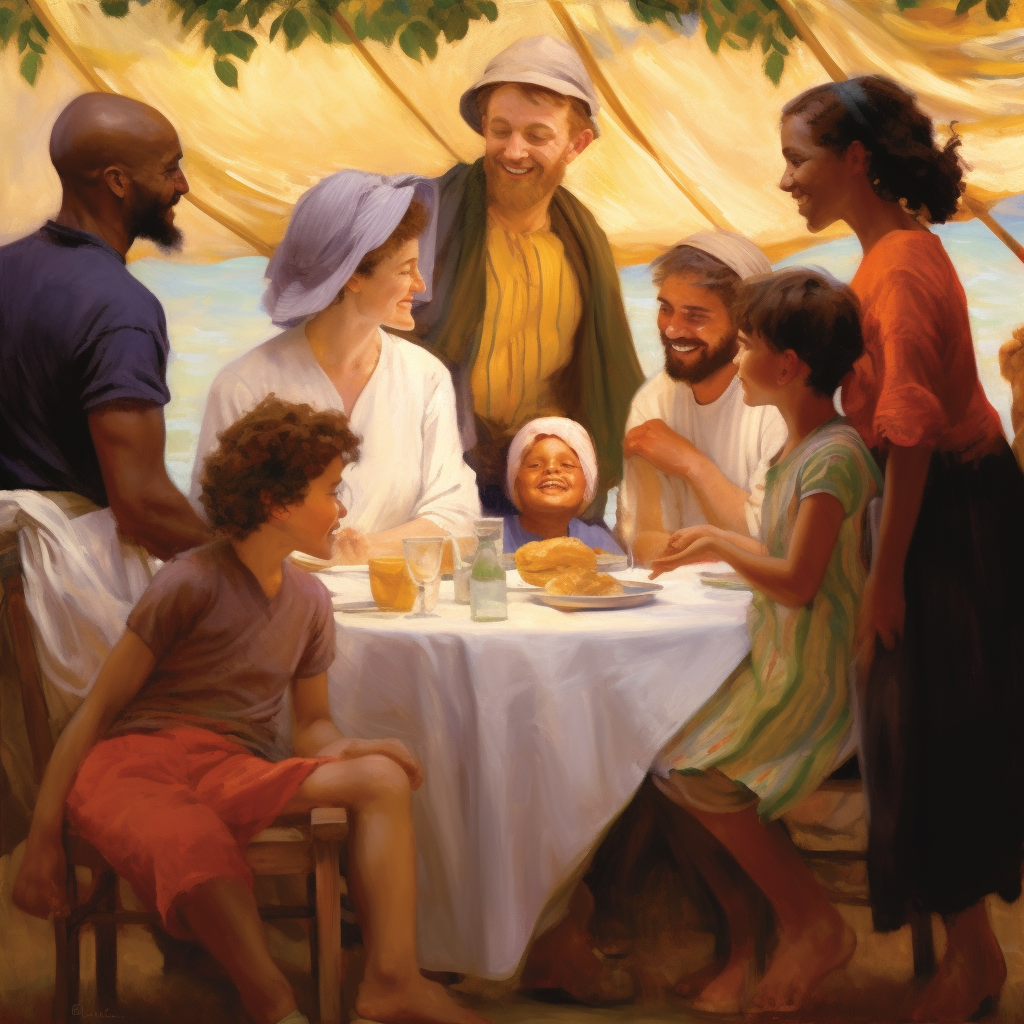“Behold, how good and how pleasant it is for brethren to dwell together in unity!” (Psalm 133:1, KJV)
Introduction:
Today’s devotional introduces the parable of the Cultural Feast, where a diverse community gathers to celebrate but finds themselves divided. Amidst the fragmentation, one individual emerges to unify the divided crowd. This narrative prompts us to meditate on our own roles as agents of unity and reconciliation in a world often rife with division.
Devotional Story:
In a small, bustling town, a grand feast was organized to celebrate the cultural richness of the community. Everyone was invited—farmers and scholars, rich and poor, people of all ethnic backgrounds. However, as the feast began, an unintended divide occurred: People started clustering based on their culture, language, or social status.
Among the attendees was Samuel, who noticed the fragmentation. Unlike others, Samuel moved from one group to another, sharing laughter, stories, and breaking bread. His actions began to dissolve the invisible walls; people started crossing boundaries to share and celebrate together.
Samuel’s role emulates Christ, who came to earth to “break down the middle wall of partition between us” (Ephesians 2:14, KJV).
13. But now in Christ Jesus you who once were far away have been brought near by the blood of Christ.
14. For he himself is our peace, who has made the two groups one and has destroyed the barrier, the dividing wall of hostility,
15. by setting aside in his flesh the law with its commands and regulations. His purpose was to create in himself one new humanity out of the two, thus making peace, (Ephesians 2:13-15 KJV).
Just like Samuel, Christ mingled with people from all walks of life, bringing them into a unity that transcended earthly divisions. The atmosphere in the feast transformed, embodying the biblical truth:
“There is neither Jew nor Greek…for ye are all one in Christ Jesus” (Galatians 3:28, KJV).
Conclusion:
The Parable of the Cultural Feast compels us to examine our role in either perpetuating divisions or fostering unity. The character of Samuel stands as an example of what it means to live out Christ’s call for reconciliation and unity. The Apostle Paul succinctly encapsulates this in his letter to the Colossians:
“And above all these things put on charity, which is the bond of perfectness” (Colossians 3:14, KJV).
Our role is not just to fit into a specific group but to act as connectors, uniting disparate parts into a harmonious whole. By doing so, we mirror the divine love and unity that God intends for all His children.
“But grow in grace, and in the knowledge of our Lord and Saviour Jesus Christ. To him be glory both now and for ever. Amen.” (2 Peter 3:18, KJV)
Discover more from Akedah
Subscribe to get the latest posts sent to your email.



